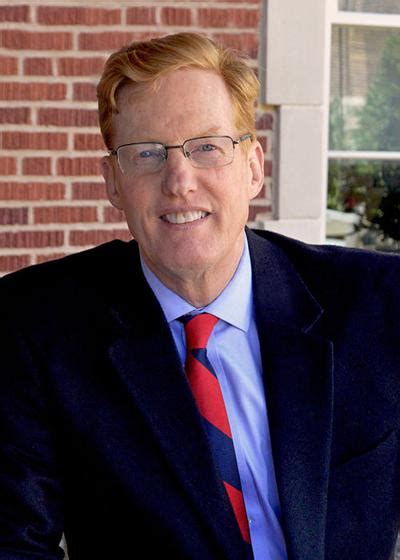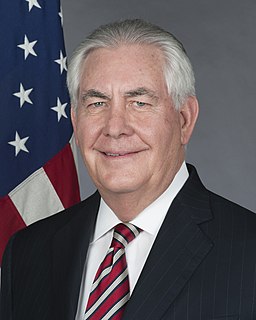A Quote by Rand Paul
I think that if you believe in regime change, you're mistaken. In 2013, we put 600 tons of weapons - us, Saudi Arabia, and Qatar - into the war against [Bashar] Assad. By pushing Assad back, we did create a safe space.
Related Quotes
I don't think he fully analyzes the situation. If you destabilize [Bashar] Assad and punish Assad, you do embolden terrorists. You embolden al-Qaida because al-Qaida is on the other side of this war. So, one side wins if you destabilize the other side. So, he will be emboldening al-Qaida and the Islamic rebels. And I'm not so sure they're better than Assad.
I think the President Donald Trump was quite clear in his statement that he made to the American people that Syria's continued violations of U.N. resolutions and previous agreements that Syria had entered into regarding the Chemical Weapons Accord would no longer be tolerated. I think we have stood by and watched multiple weapon - chemical weapons attacks by the Syrian regime under the leadership of Bashar al-Assad.
Back in August 2013, when Obama entertained the White House press corps in the Rose Garden to explain that he wasn't quite as eager to upbraid Bashar Assad as he might have inadvertently led them earlier to believe, the U.N. High Commissioner for Refugees counted about two million Syrians in its refugee statistics.
The question's whether or not there's an American interest in the Civil War [in Syria]. The question is whether or not a military strike on [Bashar] Assad will cause him to be encouraged to use more weapons or discouraged. It's easy enough to say - and the president [Barack Obama] says though this will teach him a lesson - but his military strike is intended not to target him individually, not to bring about regime change.



























